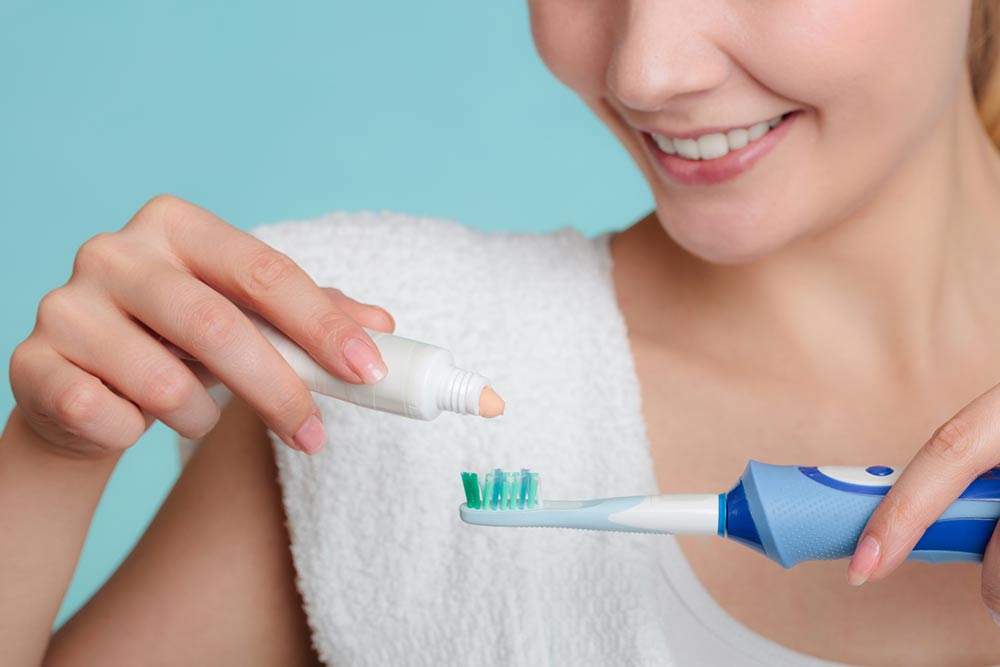10 mistakes to avoid for sensitive teeth

Teeth are an important structure of the body, and any damage to it is usually irreversible. Tooth sensitivity is a common complaint regarding oral health, with about 40 million adults in the country suffering from it. It is a curable problem that can be alleviated with some dental care practices. While the cause of tooth sensitivity may vary from person to person, it is usually due to some lifestyle habits and these oral hygiene mistakes.
Having extremely hot or cold foods
Tooth sensitivity is usually a dormant condition that causes a sudden and sharp pain in the teeth and gums after consuming certain types of foods or beverages. Usually, the sensitivity is triggered after eating or drinking extremely hot or cold foods or drinks. So, it’s important to avoid them. One should remember that even breathing in cold air can trigger this sensation, so it’s best to be suitably covered when the temperature drops.
Eating acidic foods
Acidic foods have proven to erode the tooth enamel, which is the protective layer of the teeth. Aging also naturally causes enamel to wear down, but acidic foods tend to speed up this process. Enamel erosion worsens sensitivity and makes one’s teeth susceptible to cavities. So, it’s best to steer clear of them or have them in moderation. To name a few, carbonated or fizzy beverages like sodas, sports drinks, or sparkling water or foods rich in vitamin C like lemons and tomato products are some of the culprits. Coffee, tea, vinegar, mustard, and even pickled vegetables can have the same impact.
Eating hard, sugary, or sticky snacks
Granola bars, nuts, caramelized popcorns, tortilla chips, corn nuts, chips, crackers, chocolates in any form, from bars to cookies, toffees, and candies are all hard, crunchy, or sticky snacks that can cause havoc and rapidly deteriorate one’s dental health. These snacks put a lot of pressure or stress on one’s teeth and may lead to cracked teeth. They also contain simple carbohydrates, which lead to an acidic pH in the mouth. The simple carbs break down easily and feed the acid-producing bad bacteria in the mouth, which often worsen oral issues including sensitivity. So, it’s best to avoid or limit the intake of these snacks.
Chewing ice
Ice poses a dual threat to teeth. First, it’s hard to chew and exerts excessive force on the teeth. Second, the extreme cold temperature of ice can lead to surface cracks on teeth, as enamel is constantly exposed to temperatures above 98 degrees Fahrenheit. The drastic temperature difference upon biting into ice may give sharp pangs of pain to those with sensitive teeth and increase the risk of microfractures.
Teeth whitening
Following any latest teeth whitening trends can put one’s oral health at risk and worsen the sensitivity issue. Most whitening treatments use harsh products which can affect the enamel during the polishing process. So it’s best to focus on general oral hygiene more than whitening. In many cases, people genetically have a thinner or more translucent enamel. The yellowish hue that one may notice is actually the color of dentin, which is the layer underneath the enamel, and not the result of bad oral health. So, discoloration may be caused due to genetics, and having a yellowish hue on teeth can be perfectly normal.
Brushing too hard
Another common mistake that people may inadvertently make is brushing their teeth abrasively. This can often damage the enamel and gums, and worsen tooth sensitivity. It is advisable to use a brush with softer bristles and use dentist-recommended toothpaste suitable to one’s oral health to extend the longevity of one’s teeth.
Grinding teeth
Those who have a habit of grinding their teeth, which is also known as bruxism, may often find themselves with painful gums and increased tooth sensitivity and jaw pain. In severe cases, this may contribute to the development of temporomandibular joint (TMJ) disorders. Teeth grinding is usually a reaction to extreme stress. At times, people may do it inadvertently during sleep, which is often the result of certain sleep disorders. So, there may be several ways to fix bruxism, from trying out ways to reduce stress to getting checked for any sleep disorders.
Not flossing
Flossing is an essential part of oral hygiene that removes plaque, bacteria, and food particles stuck between the teeth, and hinders the growth of oral bacteria. Skipping this step means increasing the change of cavities, tooth decay, or even potential gun diseases. As a quick fix to reduce discomfort due to tooth sensitivity, one can rinse the mouth thoroughly with salt water.
Using the same toothbrush for a long time
Experts recommend changing one’s toothbrush every three to four, or a maximum of six months. With constant use, the toothbrush bristles tend to harden which can damage the teeth and cause sensitivity.
Using too much mouthwash
Mouthwash is another hidden cause of tooth sensitivity. It contains acids and using it for an extended time or more frequently can lead to enamel erosion.
There are several treatment and pain management methods available for people with sensitive teeth, but it’s important to visit the dentist if one experiences persistent tooth sensitivity. Depending on the cause, the doctor may suggest any pain relief treatments, desensitizing toothpaste, and other remedies suitable for one’s condition.



